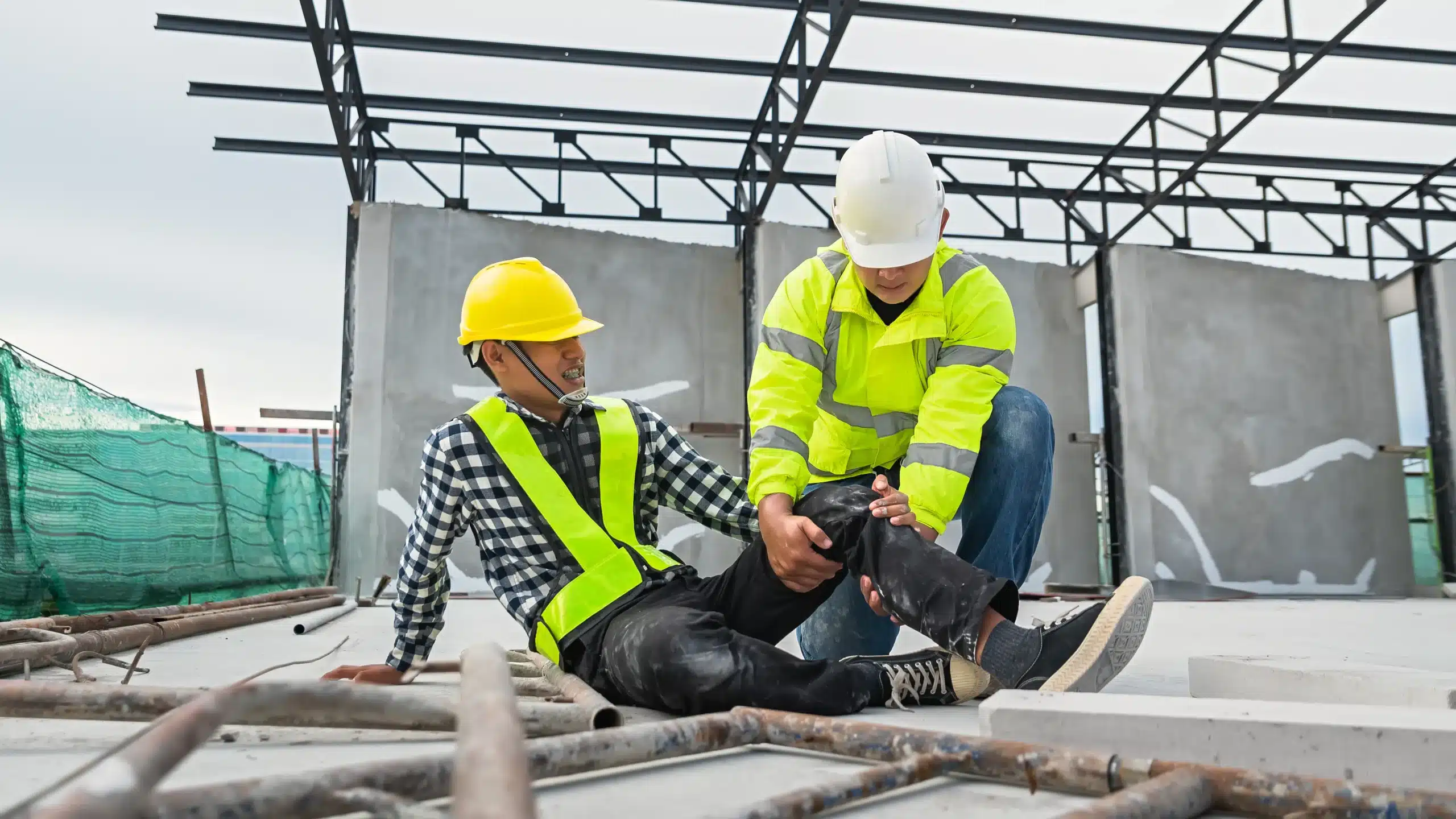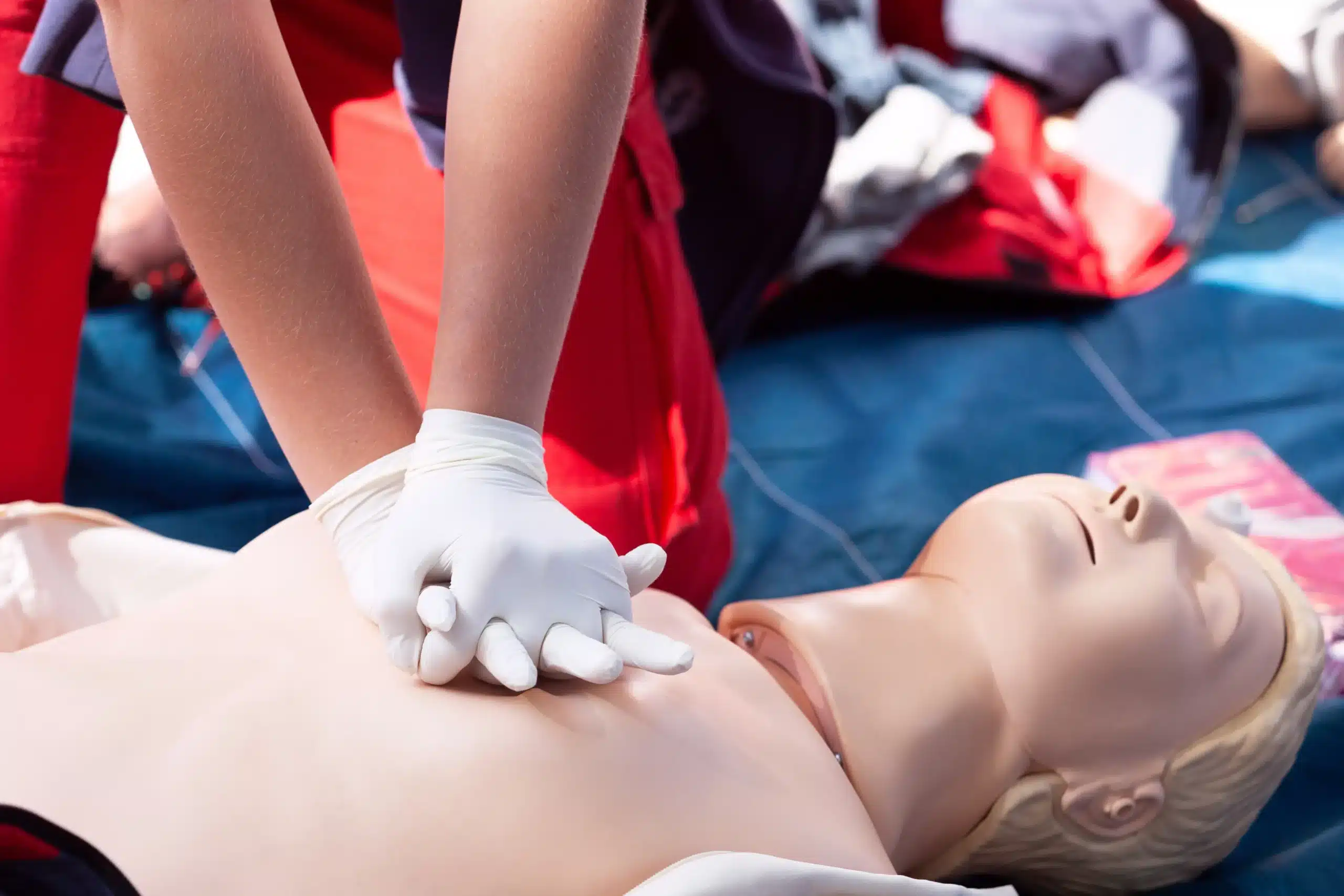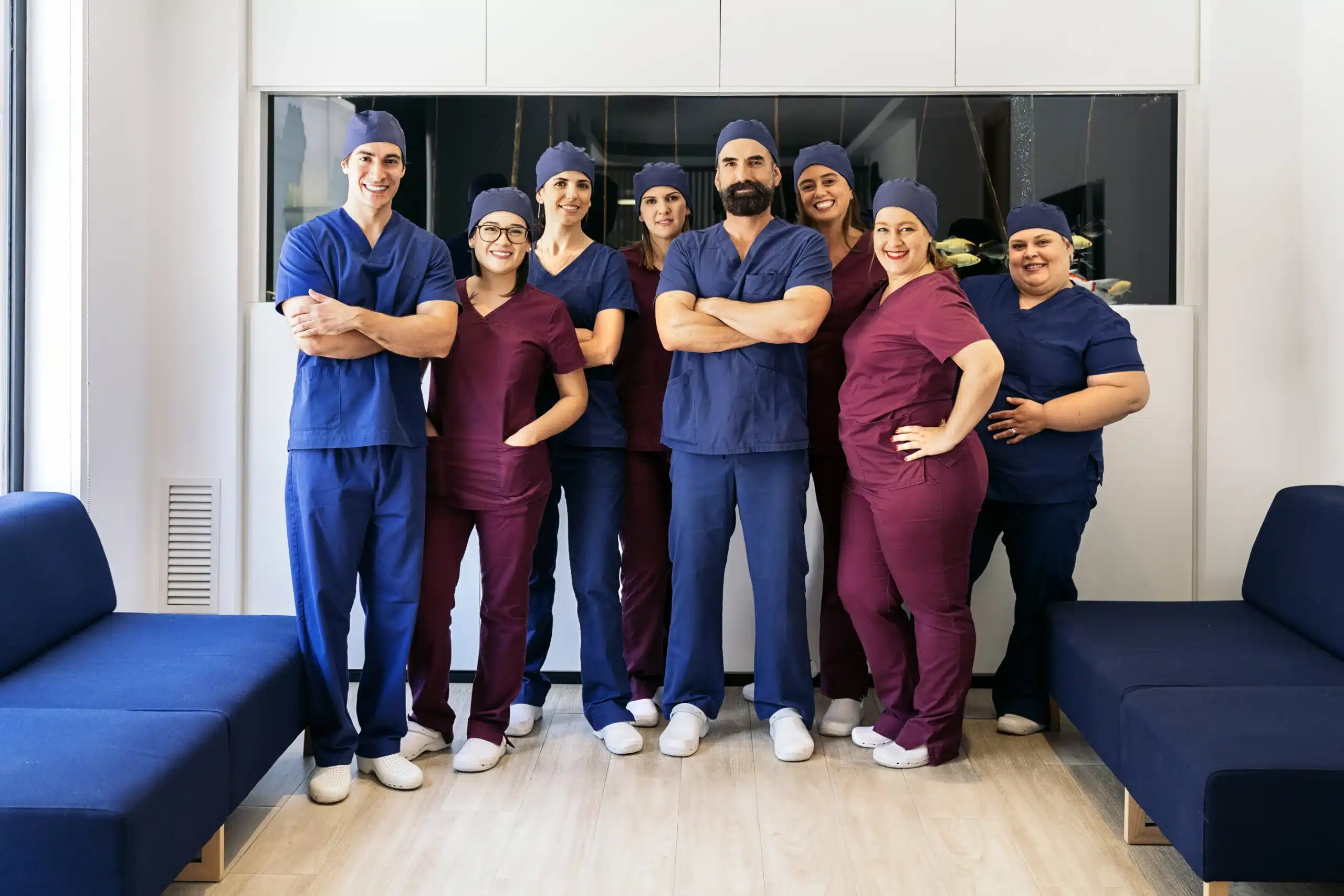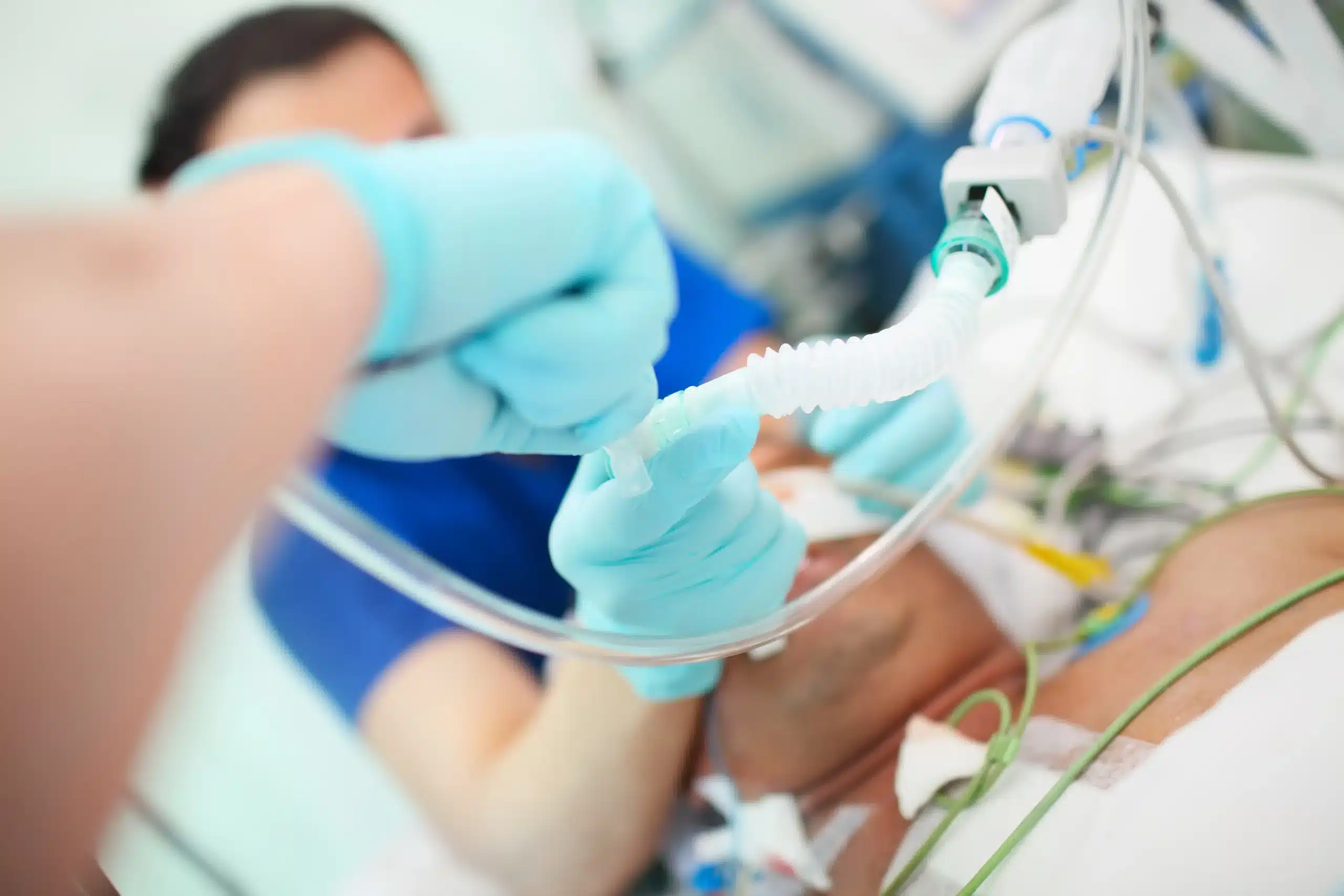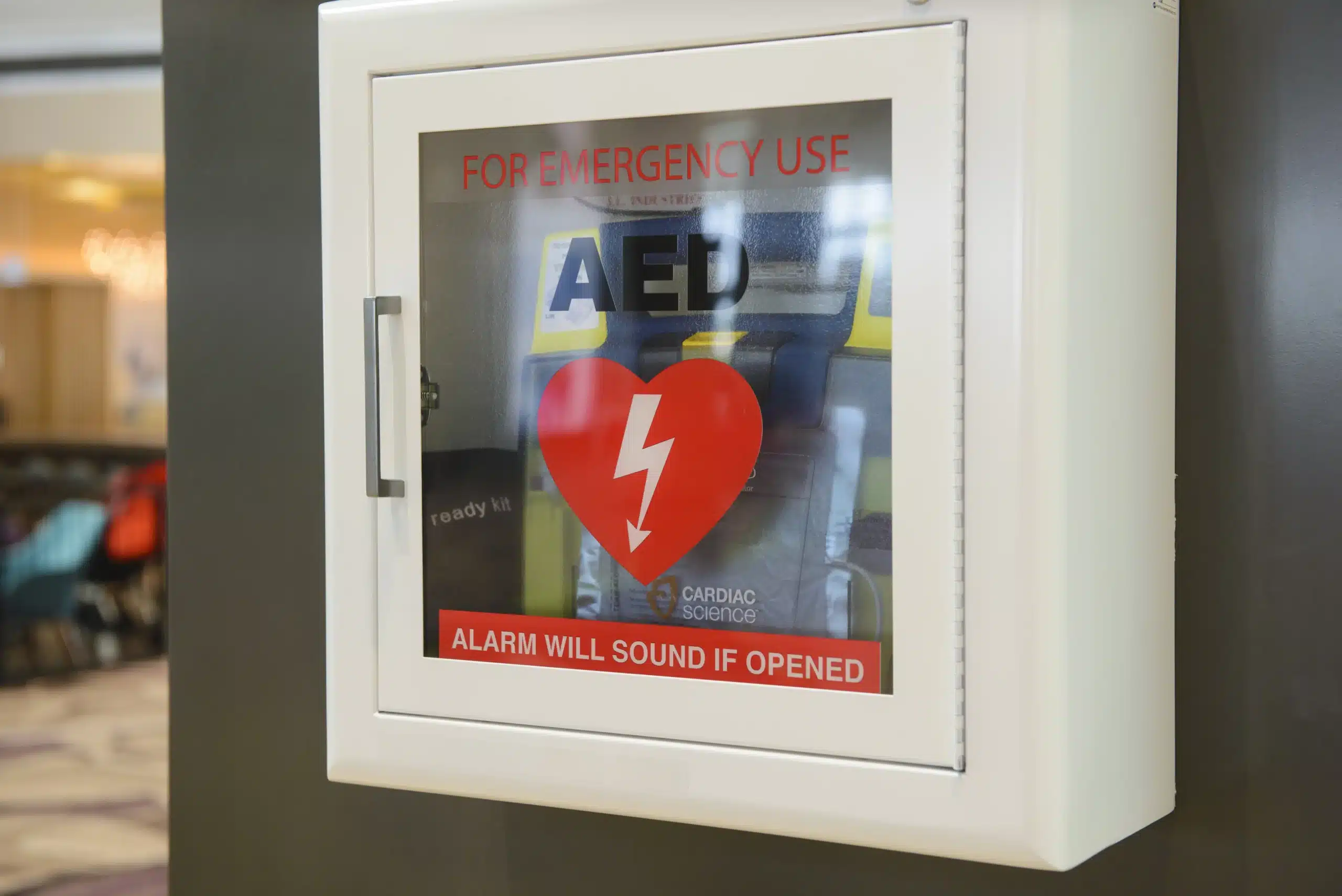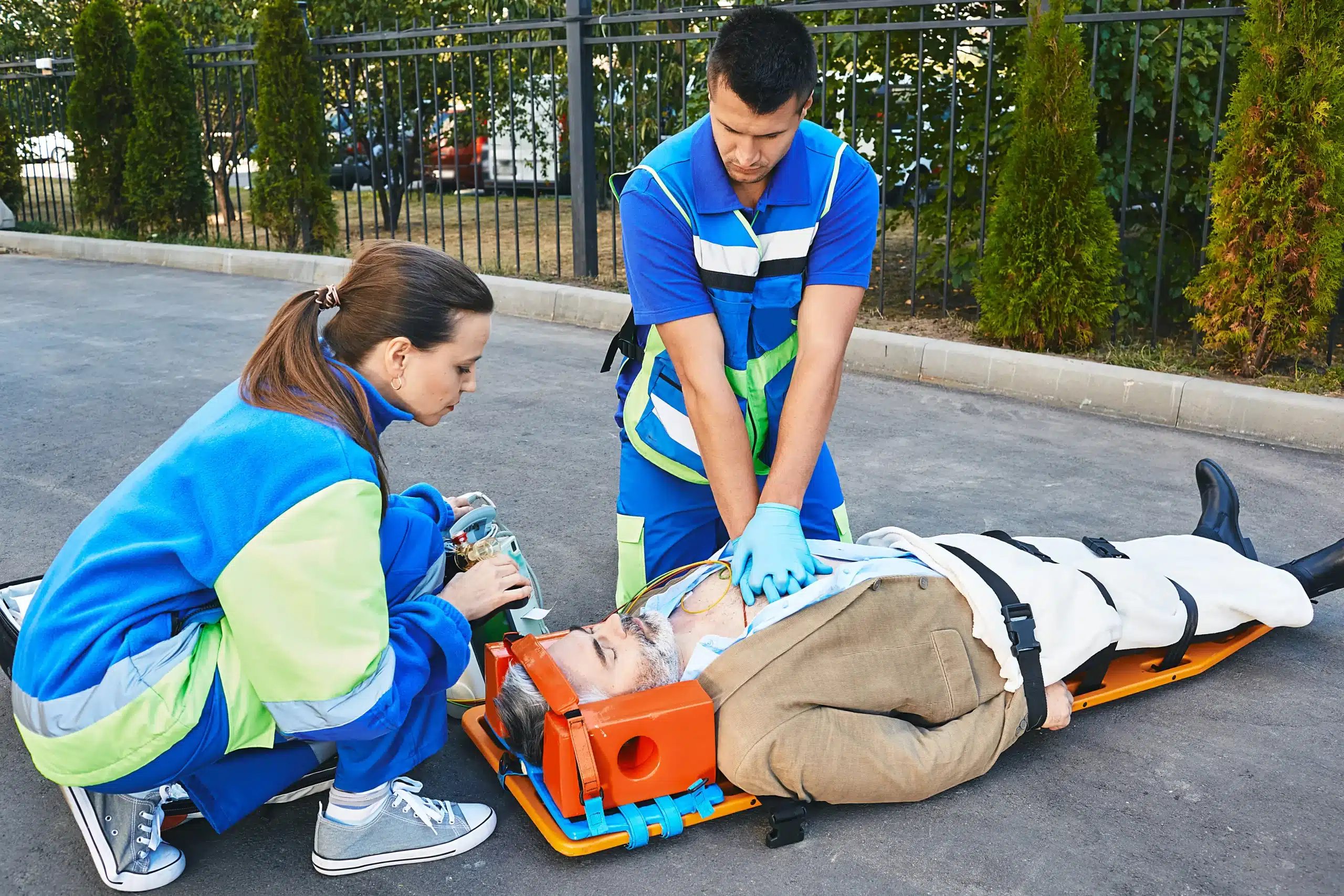Emergencies can happen anytime, anywhere. Would you know what to do? CPR certification in Daly City empowers you to respond effectively when seconds count. This comprehensive guide explores the various CPR certification courses available in Daly City, including BLS, ACLS, PALS, and First Aid/CPR combinations. Whether you’re a healthcare professional, a concerned parent, or simply someone who wants to be prepared, we’ll help you find the right course, understand the costs and schedules, and discover reputable training providers like Safety Training Seminars. We’ll also debunk common CPR myths and highlight the ongoing importance of keeping your certification current. Let’s get started.
Key Takeaways
- Find the right CPR certification for your needs: Whether you’re a healthcare professional, a parent, or simply want to be prepared, there’s a CPR course for you. Explore options like BLS, ACLS, PALS, and First Aid to find the best fit.
- CPR training fits your schedule: With flexible options like in-person classes, online learning, and blended formats, you can find a course that works with your busy life. Look for providers offering convenient schedules and locations.
- Maintain your lifesaving skills: Keep your CPR certification current and consider continuing education to stay up-to-date on the latest techniques. Regular practice ensures you can confidently respond in an emergency.
What is CPR Certification in Daly City?
CPR certification in Daly City gives you the skills to respond to medical emergencies. It’s a structured training program covering essential lifesaving techniques, especially cardiopulmonary resuscitation (CPR). This training is critical for everyone, but particularly vital for healthcare providers like nurses, doctors, and paramedics who regularly face situations requiring them to assist adults, children, and infants. Learning CPR empowers you to act quickly and effectively when every second counts. You can find a variety of CPR and first-aid certification courses in Daly City through Safety Training Seminars.
Several organizations in Daly City offer American Heart Association (AHA) certified CPR courses, including Basic Life Support (BLS), Advanced Cardiovascular Life Support (ACLS), and Pediatric Advanced Life Support (PALS). These courses cater to both healthcare professionals and the general public, ensuring everyone can access these vital skills. Class schedules are designed to accommodate busy lifestyles, with options available throughout the week. For healthcare professionals looking to maintain their skills, the Resuscitation Quality Improvement (RQI) program offers a streamlined path to obtain and maintain AHA certification. This program emphasizes continuous learning and skill retention, ensuring you’re always prepared.
CPR Certification Courses: What’s Available?
Choosing the right CPR certification course depends on your specific needs and career goals. Here’s a breakdown of the common courses available in Daly City:
Basic Life Support (BLS)
BLS certification is the foundation for anyone in healthcare. These courses cover essential life-saving skills for adults, children, and infants, including CPR, recognizing and responding to life-threatening emergencies, using an AED, and relieving choking. BLS certification is a must-have for healthcare providers like nurses, doctors, paramedics, and other professionals in the medical field. Safety Training Seminars offers BLS certification courses in San Mateo, convenient for those in the surrounding areas like Daly City and Millbrae.
Advanced Cardiovascular Life Support (ACLS)
ACLS certification builds upon the skills learned in BLS, focusing on advanced techniques for managing cardiovascular emergencies and other respiratory emergencies. This course is designed for healthcare professionals who are often the first responders in critical situations, such as physicians, nurses, and paramedics. ACLS training covers topics like airway management, effective team dynamics, and recognizing and treating strokes. You can find ACLS courses at Safety Training Seminars.
Pediatric Advanced Life Support (PALS)
PALS certification focuses on the specialized skills needed to provide high-quality care for infants and children facing life-threatening illnesses or injuries. Healthcare providers who regularly work with children, such as pediatricians, pediatric nurses, and emergency medical technicians, should obtain PALS certification. The course covers topics like pediatric assessment, respiratory management, and effective resuscitation techniques. Check out Safety Training Seminars for PALS certification in the San Mateo area.
First Aid & CPR
Combining First Aid and CPR training provides a well-rounded skill set for responding to various emergencies. This course is suitable for anyone, from healthcare professionals to teachers, childcare providers, and concerned citizens. You’ll learn how to manage injuries, control bleeding, treat burns, and provide basic life support until professional help arrives. First Aid and CPR training is available through Safety Training Seminars.
Where to Get Certified: Reputable CPR Providers in Daly City
Finding the right CPR certification course is crucial, and thankfully, Daly City has several reliable providers. Here are a few options to consider:
Safety Training Seminars
Safety Training Seminars offers a comprehensive range of CPR and first-aid courses right here in San Mateo County. They’re an authorized provider of American Heart Association (AHA) courses, including BLS, ACLS, PALS, and CPR/First Aid. With a convenient schedule offering classes daily from 8 am to 10 pm, seven days a week, you’re sure to find a time that fits your busy life. Plus, their low price guarantee ensures you’re getting the best value. For more information, explore their website for details on their BLS, ACLS, and CPR/First Aid courses.
American Heart Association
The American Heart Association sets the standards for CPR training. While they don’t directly offer classes, their website is a valuable resource. Use their course finder to locate certified training centers and instructors in Daly City offering AHA-approved courses. This ensures you receive high-quality instruction meeting nationally recognized guidelines.
American Red Cross
The American Red Cross is another well-known provider of CPR certification, offering a variety of courses, including online and in-person options. Their online CPR training provides a flexible way to learn at your own pace, ideal for busy schedules. Keep in mind that online-only courses usually require an in-person skills session for full certification.
Positive Heart CPR
Located in Daly City, Positive Heart CPR offers various CPR and first-aid certification courses. Check out their Yelp page for contact information, schedules, and reviews. They’ve received positive feedback for their training quality and customer service. They offer courses such as BLS, ACLS, and PALS, often including continuing education units (CEUs).
CPR Certification: Costs & Value
Getting CPR certified is an investment in yourself and your community. Let’s break down the costs associated with CPR training and explore the immense value it provides.
Course Pricing
CPR certification costs vary depending on the training level and the provider. For example, Basic Life Support (BLS) certification through providers like Positive Heart CPR might cost around $75, not including the textbook. For the most up-to-date pricing, contact providers like Safety Training Seminars directly. You can explore their BLS course information on their website.
Group Discounts & Low Price Guarantees
Many CPR training providers offer group discounts, making it a smart choice for workplaces, community groups, or families learning together. Safety Training Seminars offers a low price guarantee in San Mateo County, ensuring you receive excellent value. Inquire about group discounts and price guarantees when contacting a provider.
Additional Fees & Materials
While the course fee covers instruction and certification, there might be additional costs for materials. Some courses require a textbook, which can add to the overall expense. For example, a BLS textbook could cost an additional $20. Factor these potential extras into your budget.
Benefits for Healthcare Professionals
For healthcare professionals, a recognized CPR certification is crucial. It provides the knowledge and skills to respond effectively during emergencies, delivering the best possible patient care. The American Heart Association’s RQI program offers a streamlined path for medical professionals to maintain their BLS, ACLS, and PALS certifications, ensuring your skills are current and you can confidently handle critical situations. This investment enhances your professional credentials and demonstrates your commitment to patient safety.
Class Schedules & Locations: Find a Time That Works
Finding a CPR class that fits your schedule shouldn’t be a hurdle. Luckily, there are options to suit everyone’s needs, from traditional in-person classes to more flexible online and blended learning formats. Here’s a breakdown to help you find the perfect fit:
In-Person Training
Many prefer the hands-on learning experience of in-person training. For those in Daly City, CPR classes are available seven days a week, from 8 am to 10 pm. This wide range of availability makes it easier to find a time that works, even with the busiest of schedules. The classroom setting allows for direct interaction with instructors, real-time feedback, and the opportunity to practice skills with other students.
Online & Blended Learning
If your schedule is unpredictable or you prefer learning at your own pace, online and blended learning CPR courses might be a better fit. Blended learning combines the convenience of online study with the benefits of hands-on practice. You’ll typically complete the theoretical coursework online at your own speed, then attend an in-person skills session to practice and demonstrate your proficiency. This blended CPR training offers the flexibility many people need to fit training into their lives.
Training Centers in Daly City
Daly City has several reputable training centers offering CPR certification. Safety Training Seminars provides American Heart Association (AHA) certified courses in CPR, BLS, ACLS, PALS, and First Aid. Their comprehensive training ensures you gain the skills to respond confidently in emergencies. You can also find CPR classes at Positive Heart CPR, located at 135 School St, Daly City, CA 94014. They offer various CPR certification classes to meet diverse learning styles and needs. Having several options within Daly City makes it convenient to find a location and course that works for you.
What Happens During CPR Training?
CPR training in Daly City offers a blend of instruction and hands-on practice to equip you with lifesaving skills. Let’s break down what you can expect during a typical CPR class.
Course Duration & Format
CPR training courses are designed to be accessible, with classes often available daily, including evenings and weekends. This flexible scheduling accommodates various work and personal commitments. The courses themselves are generally efficient, allowing you to gain essential skills without a huge time commitment. For specific schedules, check with your chosen provider, like Safety Training Seminars.
Hands-on Practice
The core of CPR training lies in hands-on learning. You’ll practice chest compressions and rescue breaths on realistic manikins, often with voice-activated feedback to guide your technique. This practical experience builds the muscle memory and confidence you’ll need to perform CPR effectively in a real emergency. While instructors may not always be physically present for every practice session, support is usually readily available. Learn more about this hands-on approach from providers like Bay Area CPR.
Written & Practical Exams
To ensure you’ve grasped the material, CPR training includes both written and practical exams. The written exam tests your knowledge of CPR principles and procedures. The practical exam assesses your ability to perform CPR correctly. Successfully completing both is essential for receiving your certification. These assessments confirm your readiness to respond confidently in a crisis.
Immediate Certification
A major advantage of many CPR training programs is the immediate certification process. Upon successful completion of the course and exams, you’ll typically receive your certification card the same day. This allows you to put your new skills to use right away. Customer reviews often highlight the convenience of this quick turnaround, along with flexible scheduling options.
Keep Your Certification Current
Knowing how to perform CPR can be truly life-saving. But like any important skill, it requires upkeep. Staying current with your CPR certification ensures you’re always prepared to act quickly and effectively in an emergency.
Renewal Requirements
CPR certifications typically expire every two years. This isn’t just a formality—guidelines and best practices can change. Renewing your CPR certification ensures your knowledge stays sharp and aligned with the latest recommendations. Check with your certifying organization, such as the American Heart Association or the American Red Cross, for their specific renewal process. They offer various renewal courses designed to refresh your skills and cover any updates.
Continuing Education
Beyond renewing your basic certification, consider exploring continuing education opportunities. Programs like the Resuscitation Quality Improvement (RQI) program offer a flexible and convenient way to maintain your skills and stay up-to-date on the latest resuscitation techniques. RQI uses low-dose, high-frequency training to reinforce your knowledge and build confidence. Check with your employer or training provider to see if RQI is a good fit for your needs.
The Importance of Current Skills
Having a current CPR certification isn’t just about checking a box—it’s about being prepared to make a real difference. Effective CPR can maintain vital blood flow and oxygen to the brain and other organs, significantly increasing a person’s chances of survival until professional medical help arrives. Regularly refreshing your skills through renewal courses and continuing education programs ensures you can provide high-quality CPR when it matters most. A current certification also demonstrates your commitment to providing the best possible care, which is valuable whether you’re a healthcare professional, a childcare provider, or simply someone who wants to be prepared for anything. Learn more about the importance of CPR for healthcare providers.
Choose the Right CPR Course
Choosing the right CPR course is crucial for effective training. Consider these factors to ensure the best fit for your individual needs:
Assess Your Needs & Goals
Before searching for a CPR course, consider your specific needs and goals. Why are you pursuing CPR certification? Is it a job requirement, or are you learning for personal growth? Healthcare providers, such as nurses, doctors, and EMTs, likely need an American Heart Association BLS certification. This course covers CPR for adults, children, and infants, including AED use and choking relief. If you’re a parent, teacher, or someone wanting to be prepared for emergencies, a standard CPR and First Aid course might be more suitable. Think about your specific situation to determine the best course type.
Compare Courses & Providers
Once you have a clearer idea of your goals, compare different courses and providers. Look at options in your area. Safety Training Seminars, for example, offers various courses, including BLS, ACLS, PALS, and First Aid, in Daly City. Check course content, duration, and schedule. Flexibility is key. Providers offering weekend or evening classes are helpful for busy weekday schedules. Also, consider the certifying organization. The American Heart Association and the American Red Cross are widely recognized and accepted.
Read Reviews & Testimonials
Finally, don’t underestimate reviews and testimonials. Past student feedback offers valuable insights into the quality of instruction and the overall learning experience. Look for comments mentioning engaging instructors, clear explanations, and ample hands-on practice. A positive learning environment significantly impacts your confidence and ability to retain information. For example, positive reviews often mention instructors who create a comfortable and supportive atmosphere, making learning more enjoyable and effective. Research and comparison will help you find the right CPR course to equip you with essential lifesaving skills.
CPR Certification: Myths vs. Facts
It’s easy to get confused about CPR facts, especially if your only experience is from TV medical dramas. Let’s clear up some common misconceptions about CPR training and certification.
Debunking CPR Training Myths
One persistent myth is that only healthcare professionals can perform CPR. This simply isn’t true. Anyone can learn CPR—in fact, we encourage everyone to learn it! Proper CPR training empowers individuals to provide immediate, life-saving care during an emergency until professional help arrives. Another misconception is that CPR always saves lives. While CPR significantly increases the chances of survival, it’s not a guarantee. Even if the outcome isn’t what you hoped for, providing CPR is always the right choice. It can keep blood flowing to vital organs, giving someone a fighting chance. It’s also important to remember that it’s okay to pause CPR briefly to call 911 or use an AED. More information on common CPR misconceptions can be found on MyCPR Now.
Certification Requirements
Different professions and situations may require different levels of CPR certification. A healthcare provider CPR certification is a specialized training program tailored to the specific needs of medical professionals, ensuring they can act effectively during emergencies in a healthcare setting. For healthcare professionals in Daly City seeking a streamlined way to get certified, the American Heart Association’s RQI (Resuscitation Quality Improvement) program is a popular option, offering a modern and efficient path to obtaining official American Heart Association BLS, ACLS, and PALS certification cards. You can explore RQI options and other CPR courses available in Daly City.
Understanding CPR Limitations
It’s crucial to understand what CPR can and cannot do. One common misunderstanding is that CPR can be performed on a conscious person. CPR is designed for individuals who are unresponsive and not breathing normally, indicating their heart has stopped beating effectively. Another myth is that CPR restarts the heart. While CPR maintains blood circulation, it doesn’t restart the heart’s electrical activity. Its primary purpose is to keep oxygenated blood flowing to vital organs until paramedics arrive and can provide advanced medical care. Learn more about the realities of CPR and its role in emergency situations.
CPR Certification & Healthcare Professionals
For healthcare professionals in Daly City, CPR certification is more than just a valuable skill—it’s often a job requirement and a cornerstone of quality patient care. It demonstrates a commitment to patient safety and can significantly enhance your career prospects.
Improve Job Opportunities
Many healthcare roles, from nurses to physicians, require CPR certification. It signals to potential employers that you’re prepared to handle critical situations and provide effective patient care. Holding a current certification can give you a competitive edge, showing you take initiative and prioritize professional development. If you’re a medical student or considering a career in healthcare, obtaining your CPR certification early can strengthen your resume.
Build Confidence in Emergencies
CPR certification equips healthcare providers with the knowledge and skills to respond effectively in emergencies. This training instills confidence, allowing you to act quickly and decisively when seconds matter. Knowing you can provide immediate assistance reduces anxiety and improves your overall performance in high-pressure situations. This confidence extends beyond CPR, fostering a greater sense of preparedness for various medical emergencies. Regularly refreshing your CPR skills through courses like those offered by Safety Training Seminars helps maintain this crucial confidence.
Meet Industry Standards
CPR certification is often a prerequisite for maintaining licensure and meeting industry standards in healthcare. Programs like the American Heart Association’s RQI program offer a streamlined way for healthcare professionals in Daly City to obtain their BLS, ACLS, and PALS certifications. These certifications demonstrate adherence to established guidelines and best practices in resuscitation. Staying up-to-date with the latest CPR techniques ensures you’re providing the highest standard of care. For convenient and affordable options, Safety Training Seminars offers a low price guarantee on their courses, including BLS, ACLS, and RQI training.
Related Articles
- CPR Classes in Daly City: Your Complete Guide – San Mateo CPR Classes
- CPR Training in Daly City: Your Complete Guide – San Mateo CPR Classes
- BLS Certification in Daly City: Your Comprehensive Guide – San Mateo CPR Classes
- AHA Certification in Daly City: Your Complete Guide – San Mateo CPR Classes
- American Heart Association (AHA) Courses in Daly City – San Mateo CPR Classes
Frequently Asked Questions
What’s the difference between BLS and ACLS certification?
BLS certification covers the fundamentals of CPR and life-saving skills for adults, children, and infants. It’s a foundational course for anyone in healthcare. ACLS certification builds upon BLS, focusing on advanced techniques for managing cardiovascular and respiratory emergencies. It’s designed for healthcare professionals who are often the first responders in critical situations. Think of BLS as the essential first step, and ACLS as the more specialized training for advanced medical professionals.
How do I find a CPR class near me in Daly City?
Several organizations offer CPR certification in and around Daly City. Safety Training Seminars, located in nearby San Mateo, offers a range of courses, including BLS, ACLS, PALS, and CPR/First Aid. You can also check the American Heart Association and American Red Cross websites for certified training centers in your area. Positive Heart CPR is another option located directly in Daly City. Don’t forget to check online reviews to find a provider that fits your needs and learning style.
How much does CPR certification cost?
The cost of CPR certification varies depending on the course level, provider, and any required materials. Basic Life Support (BLS) courses typically range from $70 to $90. More advanced courses like ACLS and PALS are usually more expensive. Many providers offer group discounts, so if you’re learning with friends, family, or colleagues, be sure to ask. Remember to factor in the cost of any required textbooks or materials. Safety Training Seminars offers a low price guarantee, so they’re a good place to start your search.
What should I expect during a CPR class?
CPR classes combine instruction with hands-on practice. You’ll learn the theoretical aspects of CPR, including how to recognize emergencies and perform chest compressions and rescue breaths. A significant portion of the class involves practicing these skills on manikins. Most classes also include written and practical exams to ensure you’ve mastered the techniques. You’ll typically receive your certification card the same day you complete the course.
How often do I need to renew my CPR certification?
CPR certifications are typically valid for two years. Renewing your certification ensures you’re up-to-date on the latest guidelines and best practices, which can change over time. Renewal courses are shorter than initial certification courses and focus on refreshing your skills and knowledge. Staying current with your CPR certification is essential for anyone who wants to be prepared to help in a medical emergency.
